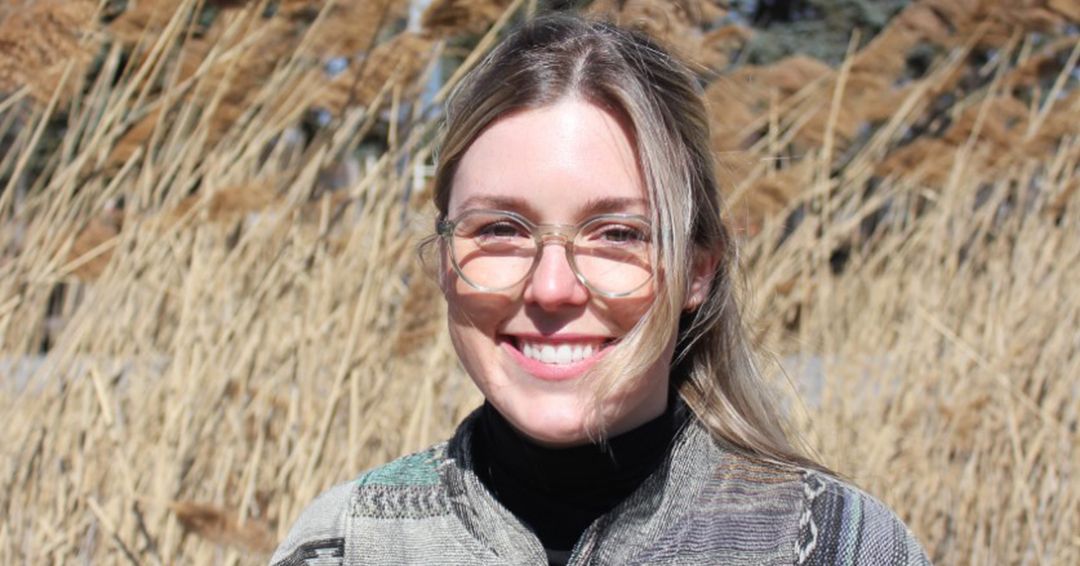
With conflicts raging in Ukraine, Yemen, Afghanistan and Ethiopia, and many other parts of the world, help provided by humanitarian organizations is needed more than ever. A group of McGill students was recently offered the chance to take part in a crisis simulation to experience what a real humanitarian mission looks like – and maybe take part in one themselves some day.
Organized by third year medical student Carol-Ann Bédard-Plante, president of the Medical Students’ Society’s Wilderness Medicine Interest Group, and first year medical student Arnaud Godin, the Humanitarian Crisis Management Simulation (HCMS) took place online on March 5. During the full-day activity – facilitated by Humanitarian Partners, an organization offering simulation-based training, research and global humanitarian response – students from across McGill interacted with actors portraying civilians or stakeholders in the midst of a crisis situation.
We spoke to Bédard-Plante about the initiative and what it meant to her and her fellow students to gain this type of experience.
Why did you decide to organize this simulation?
In 2021, I was looking at different global health programs to complement my medical training. During my search, I came across a Facebook event for a simulation that had taken place at the University of Ottawa. I felt disappointed that I could not participate, and that there were no alternatives available at McGill at that time. Thus, I decided to take matters into my own hands and organize one!
Who took part?
In total, 24 eager people participated in the HCMS. Considering this was a first for the event, we believe this turnout to be impressive. Participants were from all over McGill, which truly emphasized the interdisciplinary nature of the simulation, as all students brought their perspective to their team members and learned from their teammates.
Can you tell us a little about how the day unfolded?
The simulation started in the morning, with trainees being briefed about the crisis they had to manage as an NGO. They spent the morning interacting with various actors and gathering information on the situation. They had to work collectively and under pressure to optimize the acquisition and synthesis of information. Meanwhile, there were multiple disturbances included by the simulation team to ramp up the stress levels of trainees. In the afternoon, they were urgently asked to participate in communication and planning efforts with very short turnover times.
Throughout the day, participants were thus overloaded with information and tasks to accomplish to reproduce the fast-paced environment of crisis management. At the end of the simulation, there was a Q&A session with Marie Muñoz, MD, physician-advisor in infectious diseases for the Direction régionale de santé publique de Montréal, and Jean-Baptiste Lacombe-Lavigne, Directeur of Health Operations for the Quebec branch of the Canadian Red Cross – two well-established humanitarian workers with medical and nonmedical backgrounds. This session was highly appreciated by the students, as it allowed them to network and ask specific questions on work in the field, as well as to get feedback on situations they encountered during the day.
How did they do?
The students were truly impressive during the simulation, as they were decisive and came up with creative solutions to complex problems in very short timeframes. Their overall ability to collaborate and strategize in groups was also striking, as they worked efficiently within and between teams to get the most out of the event.
Were the participants offered feedback on their performance?
Over the course of the event, participants were evaluated on the demonstration of core humanitarian competencies. The feedback has been sent out to participants and provided them with an idea of areas where they did well and where they need to improve.
Did you get any feedback from the participants about the simulation?
Participants really praised the value of the simulation as a learning tool. Many mentioned that it felt very realistic and uncomfortable at times, as they often lacked information and time to make decisions and produce results. This forced them into being creative and decisive to meet their deadlines. We also recently received comments via the post-HCMS survey.
Would you mind sharing a couple of them?
Sure. In response to the question, “What did you like most about the simulation?” we heard:
“Never having an uneventful moment and the amount of teamwork required to navigate tasks;” and
“The situation in the field was subject to change, which I thought was similar to reality.”
Any plans for future simulations?
We would love to make the event recurrent as we believe interest would grow every year with participants sharing their experiences.
What did you hope to accomplish by organizing this simulation?
Our main objective with the HCMS was to provide McGill students with hands on humanitarian crisis experience, as there are still very limited opportunities to train future humanitarians. We also wanted to make sure participants came from all faculties to foster the interdisciplinary nature of humanitarian work. At the end of the event, many students were wondering where to start their humanitarian career, and we believe that participating in the simulation was part of the answer.
Do you have any plans to volunteer for a humanitarian mission when you finish your medical training?
It has always been part of the plan, but at this point it is difficult to foresee how and when it will happen. One thing is certain, I want to be well prepared when I get to that point!
